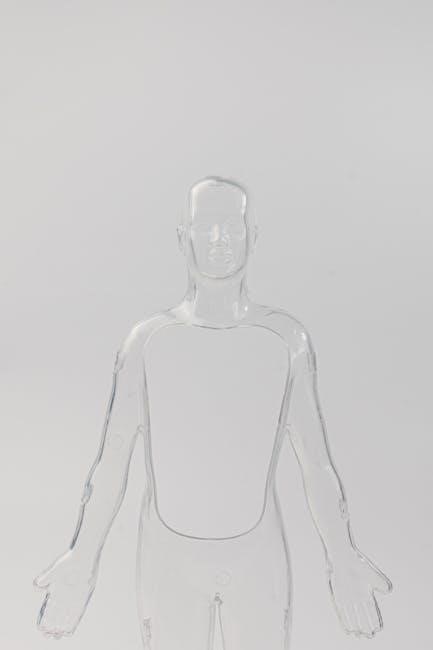Nursing Mastery PDF guides provide comprehensive resources for achieving clinical excellence, offering evidence-based strategies and frameworks to enhance nursing skills and knowledge through structured, competency-based learning approaches.
1.1 Defining Nursing Mastery and Its Importance
Nursing mastery refers to the attainment of advanced clinical expertise, ensuring nurses deliver high-quality, evidence-based care. It emphasizes proficiency in critical thinking, decision-making, and psychomotor skills. Mastery is vital for patient safety, improved outcomes, and professional growth. By achieving mastery, nurses enhance their ability to adapt to complex healthcare environments, leading to greater job satisfaction and patient trust. Nursing Mastery PDF guides provide structured frameworks to support this journey, fostering excellence in practice and education.
1.2 Overview of Nursing Mastery Models
Nursing mastery models are structured frameworks that guide nurses in achieving clinical expertise. These models emphasize modular learning, competency-based progression, and deliberate practice. They integrate evidence-based practices, psychomotor skill development, and cognitive load management. Mastery models adapt to modern educational needs, incorporating digital technologies and simulation-based learning. By aligning with industry standards, these models ensure nurses are proficient in critical thinking, decision-making, and patient care. Nursing Mastery PDF resources provide detailed blueprints for implementing these models effectively in both education and practice.

Key Concepts in Nursing Mastery
Nursing mastery involves evidence-based care, critical thinking, and continuous skill development. It emphasizes clinical expertise, patient-centered approaches, and the integration of theoretical knowledge with practical application.
2.1 Mastery Learning in Nursing Education
Mastery learning in nursing education focuses on achieving specific, measurable competencies through deliberate practice and structured learning. It emphasizes competency-based progression, ensuring learners demonstrate proficiency before advancing. This approach aligns with professional standards, fostering clinical expertise and critical thinking. By integrating evidence-based practices and learner-centered strategies, mastery learning prepares nurses for real-world challenges, ensuring safe and effective patient care. It is a cornerstone of modern nursing education, promoting continuous skill improvement and professional growth.
2.2 Competency-Based Progression in Nursing
Competency-based progression in nursing ensures learners advance through education and training based on demonstrated mastery of specific skills and knowledge. This approach aligns with professional standards, allowing nurses to progress at individualized paces. By focusing on measurable competencies, it ensures readiness for clinical practice, enhancing patient safety and care quality. Regular assessments and feedback are integral, enabling targeted skill development and fostering a culture of continuous improvement in nursing education and practice.

Clinical Skills Development
Clinical skills development in nursing mastery PDFs emphasize deliberate practice, psychomotor skills, and cognitive load management, ensuring nurses refine their abilities through structured learning and feedback mechanisms.
3.1 Role of Deliberate Practice in Nursing Mastery
Deliberate practice is a cornerstone of nursing mastery, involving focused training, repetition, and feedback to refine clinical skills. It emphasizes systematic improvement, enabling nurses to achieve precision and consistency in patient care. By breaking tasks into manageable components and repeatedly practicing them, nurses develop mastery. This approach, combined with psychomotor skill development, enhances cognitive load management, ensuring efficient learning and application of complex clinical procedures. Deliberate practice fosters a culture of continuous improvement, essential for maintaining high standards of patient care and professional excellence.
3.2 Psychomotor Skills and Cognitive Load Management
Psychomotor skills in nursing require the seamless integration of physical dexterity and cognitive understanding. Effective cognitive load management ensures nurses process information efficiently without mental overload. Structured training, simulation-based learning, and immediate feedback enhance skill acquisition. Simplifying tasks and using mental frameworks reduce cognitive demands, enabling precise and confident clinical actions. Nursing Mastery PDF guides offer evidence-based strategies to optimize these processes, fostering mastery and improving patient care outcomes through focused skill development and mental clarity.
Educational Strategies for Nursing Mastery
Nursing mastery PDF guides emphasize digital technologies and simulation-based learning to enhance clinical skills and knowledge, offering interactive modules and real-world simulations for practical application and improved patient care.
4.1 Use of Digital Technologies in Nursing Education
Digital technologies, such as simulation-based learning and interactive modules, are transforming nursing education. Nursing mastery PDF guides highlight the integration of virtual reality, online platforms, and mobile apps to enhance clinical training. These tools provide immersive learning experiences, allowing nurses to practice skills in controlled environments. Digital resources also offer personalized learning paths, enabling students to master concepts at their own pace. This approach improves knowledge retention and prepares nurses for real-world challenges, fostering competence and confidence in patient care.
4.2 Integrating Simulation-Based Learning
Simulation-based learning is a key strategy in nursing education, offering immersive experiences that bridge theory and practice. Nursing mastery PDF guides emphasize its role in developing clinical skills through realistic scenarios. Simulations allow nurses to practice repeatedly, building proficiency without risking patient safety. This approach supports mastery by enabling learners to apply knowledge in controlled environments, enhancing decision-making and critical thinking. Simulation-based learning is adaptable to various learning needs, providing immediate feedback and fostering confidence in clinical settings.
Patient Care and Nursing Mastery
Patient care is central to nursing mastery, emphasizing caring behaviors and cultural competence. These practices enhance patient outcomes, foster trust, and ensure individualized, compassionate care.
5.1 Caring Behaviors in Nursing Practice
Caring behaviors are foundational to nursing practice, fostering trust and emotional connection with patients. These include empathy, active listening, and compassionate communication. Nurses who demonstrate caring behaviors create a supportive environment, enhancing patient well-being and satisfaction. Mastery of these skills is cultivated through education and practice, emphasizing the importance of touch, presence, and understanding in building therapeutic relationships. Such behaviors are integral to patient-centered care and are often highlighted in nursing mastery PDF guides as essential competencies for nurses.
5.2 Cultural Competence in Patient Care
Cultural competence in nursing ensures respectful, individualized care for diverse patient populations. Nurses must understand and appreciate varying cultural beliefs, values, and practices to provide inclusive care. This competence enhances patient outcomes and satisfaction by addressing unique needs. Mastery of cultural sensitivity is supported by educational resources, such as nursing mastery PDF guides, which offer strategies to improve cross-cultural communication and awareness. Such skills are vital for delivering equitable, patient-centered care in diverse healthcare settings.
Continuous Professional Development
Continuous professional development is essential for nurses to stay updated with best practices and advancements. Nursing mastery PDF guides offer structured resources to enhance ongoing learning and competency.
6.1 Importance of Continuing Education in Nursing
Continuing education is vital for nurses to adapt to industry advancements and deliver high-quality patient care. It ensures nurses stay updated on best practices, protocols, and technologies. Investing in ongoing learning enhances professional growth and competency. Nursing Mastery PDF guides provide structured resources, including evidence-based strategies and practical tools, to support lifelong learning and mastery in clinical and patient care settings, ensuring nurses remain proficient and effective in their roles.
6.2 Role of Reflective Practice in Mastery
Reflective practice is a cornerstone of nursing mastery, fostering self-assessment and continuous improvement. By analyzing experiences, nurses enhance clinical judgment, identify skill gaps, and refine patient care strategies. Nursing Mastery PDF guides emphasize the importance of reflection in professional growth, offering frameworks to document and learn from clinical encounters. This practice cultivates resilience, critical thinking, and a commitment to lifelong learning, ultimately elevating nursing expertise and patient outcomes.

Tools and Resources for Nursing Mastery
Nursing Mastery PDF guides offer structured frameworks, study aids, and reference materials to enhance learning and clinical proficiency, providing accessible tools for professional development and skill refinement.
7.1 Utilizing Nursing Mastery PDF Guides
Nursing Mastery PDF guides provide structured frameworks and evidence-based strategies for enhancing clinical proficiency. These resources cover key topics in nursing education, offering practical insights and tools for professional development. Designed by experienced nurses, they ensure accessibility and relevance, aiding students and professionals in mastering essential skills. From pharmacology to patient assessment, these guides offer comprehensive support, making them invaluable for achieving and maintaining nursing excellence; Their availability as free downloads further enhances their utility in modern nursing education.
7.2 Effective Use of Study Aids and Reference Materials
Study aids and reference materials play a crucial role in nursing mastery by providing structured learning tools. These resources, such as one-page nursing notes and pharmacology guides, are designed to simplify complex concepts. They offer practical tips, medication administration charts, and care plan examples, enhancing both theoretical and clinical understanding. Digital tools and mobile apps further complement these materials, enabling nurses to access information anytime. By organizing and utilizing these aids effectively, nurses can improve retention, apply knowledge in real-world scenarios, and maintain high standards of patient care.

Assessment and Outcome Measurement
Assessment and outcome measurement in nursing mastery involve systematic evaluation of clinical skills and theoretical knowledge. Competency-based assessments and standardized tools ensure proficiency. Progress tracking and program effectiveness are key.
8.1 Evaluating Mastery in Nursing Programs
Evaluating mastery in nursing programs involves standardized assessments and competency-based evaluations to measure skill proficiency. Nursing Mastery PDF guides emphasize the use of rigorous, evidence-based methods to track progress, ensuring learners meet defined standards. These tools help identify skill gaps and measure program effectiveness, providing actionable insights for improvement. Regular feedback and performance tracking are integral to fostering continuous development and ensuring high-quality patient care outcomes.
8.2 Program Outcome Measures and Success Stories
Program outcome measures for nursing mastery include tracking pass rates, clinical performance, and patient satisfaction. Success stories highlight institutions achieving improved competency levels through structured mastery models. Nursing Mastery PDF guides document these outcomes, showcasing how evidence-based education enhances patient care. Such programs often report reduced medical errors and higher retention rates, demonstrating their effectiveness in preparing skilled nurses for real-world challenges.
Challenges and Solutions in Nursing Mastery
Nursing mastery faces challenges like skill gaps, resource limitations, and resistance to change. Solutions include faculty training, digital tools, and structured mastery models to bridge these gaps effectively.
9;1 Addressing Skill Gaps in Nursing Education
Addressing skill gaps in nursing education requires targeted strategies to ensure competency. Digital tools and competency-based models help bridge gaps by providing structured learning pathways. Faculty training and standardized assessments further ensure proficiency. Nursing Mastery PDF guides offer evidence-based frameworks to identify and address gaps, promoting continuous improvement. These resources emphasize deliberate practice and psychomotor skill development, enabling nurses to meet evolving healthcare demands effectively. Such interventions are critical for fostering a skilled and adaptable nursing workforce.
9.2 Strategies for Retention and Competency
Effective strategies for retention and competency in nursing involve personalized learning plans, mentorship programs, and interactive learning tools. Nursing Mastery PDF guides emphasize competency-based progression, ensuring nurses meet rigorous standards. Deliberate practice and psychomotor skill development are prioritized to enhance retention. Structured learning pathways and cognitive load management techniques further support long-term competency. These strategies, supported by evidence-based frameworks, foster a skilled and confident nursing workforce, reducing attrition and improving patient care outcomes.

Future Trends in Nursing Mastery
Emerging technologies, including digital tools and simulation-based learning, are transforming nursing education. AI-driven platforms and personalized learning pathways will enhance mastery and competency in future nursing practice.
10.1 Emerging Technologies in Nursing Education
Emerging technologies like AI, VR, and AR are revolutionizing nursing education by offering immersive, interactive learning experiences. These tools enable personalized learning pathways, real-time feedback, and simulation-based training, enhancing clinical skill acquisition. Nursing mastery PDF guides are increasingly integrating these technologies to provide adaptable, evidence-based resources. Such innovations not only address skill gaps but also prepare nurses for future healthcare challenges, ensuring they remain competent and adaptable in a rapidly evolving field.
10.2 The Role of Mastery Learning in Modern Healthcare
Mastery learning is a powerful approach in modern healthcare, focusing on competency-based progression to ensure nurses meet rigorous standards. By emphasizing individualized learning and skill demonstration, it fosters high-quality patient care. Nursing mastery PDF guides highlight its time-efficient nature and ability to adapt to diverse learning needs, ultimately enhancing clinical proficiency and patient safety. This approach is vital for preparing nurses to meet the evolving demands of healthcare, ensuring they deliver evidence-based, compassionate care.


